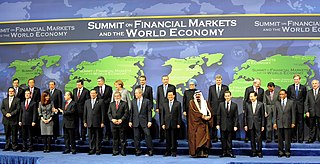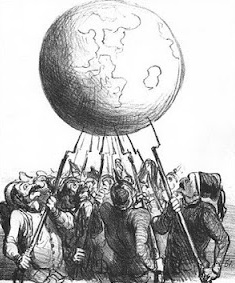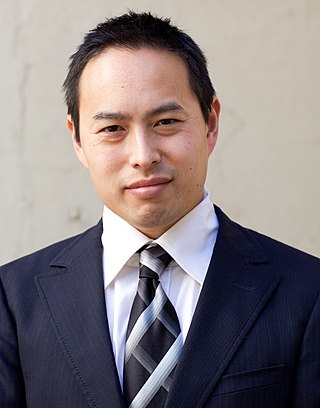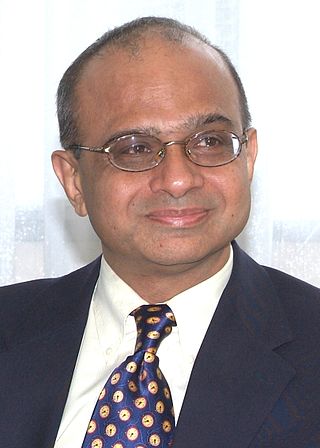
International relations (IR) are the interactions among sovereign states. The scientific study of those interactions is also referred to as international studies, international politics, or international affairs. In a broader sense, the study of IR, in addition to multilateral relations, concerns all activities among states—such as war, diplomacy, trade, and foreign policy—as well as relations with and among other international actors, such as intergovernmental organizations (IGOs), international nongovernmental organizations (INGOs), international legal bodies, and multinational corporations (MNCs). There are several schools of thought within IR, of which the most prominent are realism, liberalism, constructivism, and rationalism.
In international relations, power is defined in several different ways. Material definitions of state power emphasize economic and military power. Other definitions of power emphasize the ability to structure and constitute the nature of social relations between actors. Power is an attribute of particular actors in their interactions, as well as a social process that constitutes the social identities and capacities of actors.

A great power is a sovereign state that is recognized as having the ability and expertise to exert its influence on a global scale. Great powers characteristically possess military and economic strength, as well as diplomatic and soft power influence, which may cause middle or small powers to consider the great powers' opinions before taking actions of their own. International relations theorists have posited that great power status can be characterized into power capabilities, spatial aspects, and status dimensions.

In international relations, a middle power is a sovereign state that is not a great power nor a superpower, but still has large or moderate influence and international recognition.

"China's peaceful rise", currently referred to as "China's peaceful development", was an official policy and political slogan in China under former General Secretary of the Chinese Communist Party Hu Jintao which sought to assure the international community that China's growing political, economic, and military power would not pose a threat to international peace and security.

Deterrence theory refers to the scholarship and practice of how threats or limited force by one party can convince another party to refrain from initiating some other course of action. The topic gained increased prominence as a military strategy during the Cold War with regard to the use of nuclear weapons and is related to but distinct from the concept of mutual assured destruction, according to which a full-scale nuclear attack on a power with second-strike capability would devastate both parties. The central problem of deterrence revolves around how to credibly threaten military action or nuclear punishment on the adversary despite its costs to the deterrer.
The concept of balancing derives from the balance of power theory, the most influential theory from the realist school of thought, which assumes that a formation of hegemony in a multistate system is unattainable since hegemony is perceived as a threat by other states, causing them to engage in balancing against a potential hegemon.
In international relations, the security dilemma is when the increase in one state's security leads other states to fear for their own security. Consequently, security-increasing measures can lead to tensions, escalation or conflict with one or more other parties, producing an outcome which no party truly desires; a political instance of the prisoner's dilemma.

Realism, a dominant school of thought in international relations theory, is a theoretical framework that views world politics as an enduring competition among self-interested states vying for power and positioning within an anarchic global system devoid of a centralized authority. It centers on states as rational primary actors navigating a system shaped by power politics, national interest, and a pursuit of security and self-preservation.
Polarity in international relations is any of the various ways in which power is distributed within the international system. It describes the nature of the international system at any given period of time. One generally distinguishes three types of systems: unipolarity, bipolarity, and multipolarity for three or more centers of power. The type of system is completely dependent on the distribution of power and influence of states in a region or globally.

The balance of power theory in international relations suggests that states may secure their survival by preventing any one state from gaining enough military power to dominate all others. If one state becomes much stronger, the theory predicts it will take advantage of its weaker neighbors, thereby driving them to unite in a defensive coalition. Some realists maintain that a balance-of-power system is more stable than one with a dominant state, as aggression is unprofitable when there is equilibrium of power between rival coalitions.

Andrew Carrigan Kuchins is an American political scientist, academic, and former head of American University of Central Asia. He has held senior positions at several think tanks, including Carnegie Endowment for International Peace, Center for Strategic and International Studies and Carnegie Moscow Center. Kuchins has written numerous books, articles, book reviews. He has been interviewed on mainstream and academic outlets including as CNN, Politico, The New York Times, The Washington Post, Washington Times, The Moscow Times, Chicago Tribune and CS Monitor. Additionally, Kuchins has given testimony before the United States Congress on Russia, Central Asia and the Caucasus.
Neoclassical realism is a theory of international relations and an approach to foreign policy analysis. Initially coined by Gideon Rose in a 1998 World Politics review article, it is a combination of classical realist and neorealist – particularly defensive realist – theories.

Dr. W. Lawrence S. Prabhakar, M.A, Ph.D. is an associate professor of Strategic Studies and International Relations in the department of Political Science at Madras Christian College, India and Adjunct Research Fellow, S.Rajaratnam School of International Studies, Nanyang Technological University, Singapore.

BM Jain is an Indian political scientist and Sinologist, who has developed and popularized psycho-cultural and geopsychological paradigms in the field of international relations (IR) and international security. He has developed the theory of geopsychology in IR as an alternative to mainstream IR theories. He defines it as "a set of perceptions, images, and belief systems, formed of shared history, culture, nationalism, religion, and ethnicity, which shape the mindsets and behavioral patterns of non-state and authoritarian actors and communities inhabiting a specific geographical area." In understanding China's foreign policy behavior, for instance, he has applied the geopsychology theoretical framework that lists core elements of China's geopsychology: Century of humiliation, the Middle Kingdom syndrome, cultural pride, nationalism, strategic culture, and the anti-hegemony discourse.
Joseph Camilleri is an Australian citizen of Maltese descent. He is a social scientist and philosopher. In philosophy he mostly specialised and interested in international relations.

John Lee is an Australian academic and policy expert working on international economic and security affairs with a focus on the Indo-Pacific. Lee was a senior adviser to Australian Foreign Minister Julie Bishop from 2016 to 2018. He was also appointed the government's lead adviser for the 2017 Foreign Policy White Paper to guide Australian external policy for the next decade and beyond. He is a senior fellow at the Hudson Institute in Washington, DC and an Adjunct Professor and Senior Fellow at the United States Studies Centre at the University of Sydney until 2022. Lee was a board member of the Institute for Regional Security from 2012 until August 2016.
The History of Indian foreign policy refers to the foreign relations of modern India post-independence, that is the Dominion of India (from 1947 to 1950) and the Republic of India (from 1950 onwards).

Brahma Chellaney is an Indian geostrategist, public intellectual, columnist and author on geostrategic affairs. He is a professor of strategic studies at the Centre for Policy Research in New Delhi. He was a member of India's National Security Advisory Board and an author of its draft nuclear doctrine. He is a regular columnist for Project Syndicate, and writes for numerous other international publications. He is the author of nine books on geostrategic affairs, of which Asian Juggernaut was a best-seller and Water: Asia's New Battleground received the $20,000 Bernard Schwartz Award.
Avery N. Goldstein is an American political scientist currently serving as the David M. Knott Professor of Global Politics and International Relations at the University of Pennsylvania and a senior fellow at the Foreign Policy Research Institute. His research focuses on international relations theory, strategic studies, and Chinese Politics.












